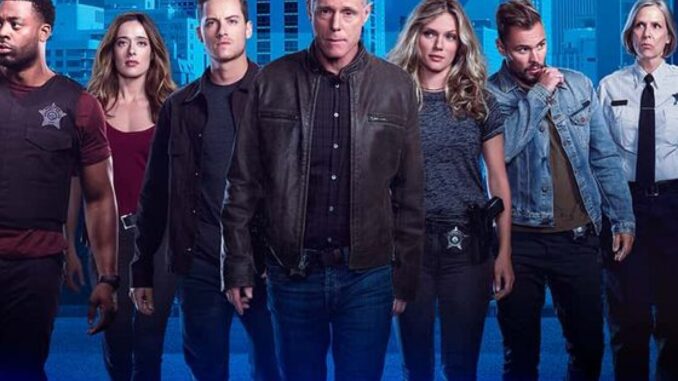
The Unseen Pulse: Chicago PD's Best Episodes as Reflected in the Audience's Heartbeat
Chicago PD is not just a police procedural; it's a visceral dive into the moral murkiness of justice, the unbreakable bonds of a chosen family, and the heavy toll of fighting crime on the streets of the Windy City. While critics might laud technical precision or narrative complexity, the true measure of the show’s impact lies in the seismic shifts it creates within its audience. These are the episodes that spark heated debates online, elicit tears in living rooms, and leave viewers breathless, proving that Chicago PD isn't merely watched—it's felt. Ranked not by critical acclaim, but by the raw, undeniable force of audience reaction, these episodes stand as monuments to the show's unparalleled ability to connect.
From its very inception, Chicago PD signaled its intention to be different, and the pilot episode, "Stepping Stone" (Season 1, Episode 1), landed with the force of a sudden punch. Viewers were immediately thrust into the morally ambiguous world of Sergeant Hank Voight and his Intelligence Unit, a team operating in the shadowy areas where the law often falls short. The audience reaction wasn't just intrigue; it was a collective gasp of "Can they do that?" The immediate conflict between the principled Detective Halstead and the ruthless Voight, culminating in Voight’s chilling, off-the-books brand of justice, polarized viewers from the start. Some recoiled, others were hooked, but no one was indifferent. This episode didn't just introduce characters; it introduced a challenging philosophy of policing that would define the series and continuously test the audience’s own moral compass.
As the series evolved, so did the audience's investment in its characters. "Ties That Bind" (Season 2, Episode 23) pushed Detective Kim Burgess to her limits, culminating in her being shot in the line of duty. This was a turning point, transforming Burgess from a patrol officer with aspirations into a hardened member of Intelligence, but at a devastating cost. The audience reaction was a blend of shock, fear, and profound empathy. Viewers, many of whom had seen Burgess as an innocent, were suddenly confronted with the brutal reality of her chosen profession. The outpouring of concern and support for her character on social media was immense, highlighting the deep emotional bond the audience had forged with her and signifying that the show had successfully made its characters feel like real people with tangible stakes.
However, no episode left a more profound, agonizing scar on the audience than "A Father's Legacy" (Season 5, Episode 22). The brutal murder of Detective Alvin Olinsky, Voight's oldest friend and most loyal confidant, in prison, was a gut punch that left viewers reeling. Olinsky, a quiet, unassuming pillar of the unit, was beloved for his steadfastness and his unspoken moral compass. His death wasn't just a plot twist; it was a deliberate act of emotional devastation. The audience reaction transcended mere sadness; it was a collective cry of grief, anger, and betrayal. Forums exploded with disbelief, theories, and raw sorrow. Olinsky’s funeral, marked by Voight’s chilling vengeance, solidified this episode as one of the most impactful and heartbreaking in the show's history, demonstrating Chicago PD's willingness to inflict genuine pain for narrative integrity.
Beyond personal tragedies, Chicago PD also excels at exploring broader societal issues through the lens of its characters. "What It Takes" (Season 7, Episode 14) saw Officer Kevin Atwater confront systemic racism head-on, refusing to lie about a corrupt fellow officer. This episode resonated deeply with audiences for its timely and courageous portrayal of a Black police officer standing up for what’s right in the face of immense pressure. The audience reaction was overwhelmingly positive, a mix of pride, admiration, and a renewed sense of respect for Atwater's character. It sparked important conversations, validating the struggles faced by many and showcasing the show’s capacity for social commentary beyond typical procedural plots.
Finally, the multi-part crossover event "Infection Part III" (Season 8, Episode 4), which saw the Intelligence Unit grapple with a deadly biological agent, tapped into a collective anxiety that was very real for its audience during the global pandemic. While crossovers always generate buzz, this particular arc felt terrifyingly plausible. The audience reaction was one of heightened tension and an uncomfortable sense of realism. Watching the characters, particularly Adam Ruzek and Kim Burgess, fight for their lives and the lives of others against an unseen enemy, mirrored the global struggle. It pulled the audience into the narrative not just as observers, but as participants in a shared, frightening reality, demonstrating the show's ability to evolve with and reflect contemporary societal fears.
Chicago PD thrives on the raw, unfiltered emotional responses it elicits from its audience. These episodes, varying in their nature from shocking introductions to devastating losses and timely social commentary, are not merely well-written or well-acted; they are moments that punctured the screen and imprinted themselves on the hearts of viewers. They are a testament to a show that understands the pulse of its audience, capable of evoking tears, anger, debate, and profound empathy, solidifying its place not just as a procedural, but as a mirror reflecting the complex, often brutal, realities of justice and human resilience.
